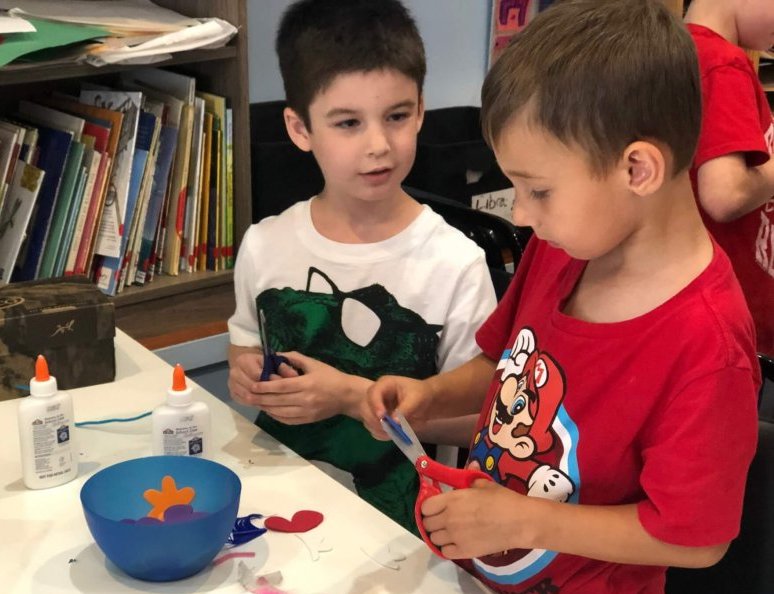
Garinim: Family dynamics and gossip
Sigh. Families, am I right? Can’t live with ‘em, can’t live without ‘em. Last week the Garinim (preK and K kiddos) dove into a story that’s fraught with difficult family dynamics. Yaakov is married and has 13 kids – 12 sons and 1 daughter – with his four wives. Yosef, the first born son of Rachel, is Yaakov’s favorite. Yaakov gives him a special fancy coat while the other brothers get boring clothes to wear. Combine that with Yosef’s tendency to tell Yaakov gossipy things about his brothers and brag about his dreams of domination, and the result is that everybody else really hates his guts.
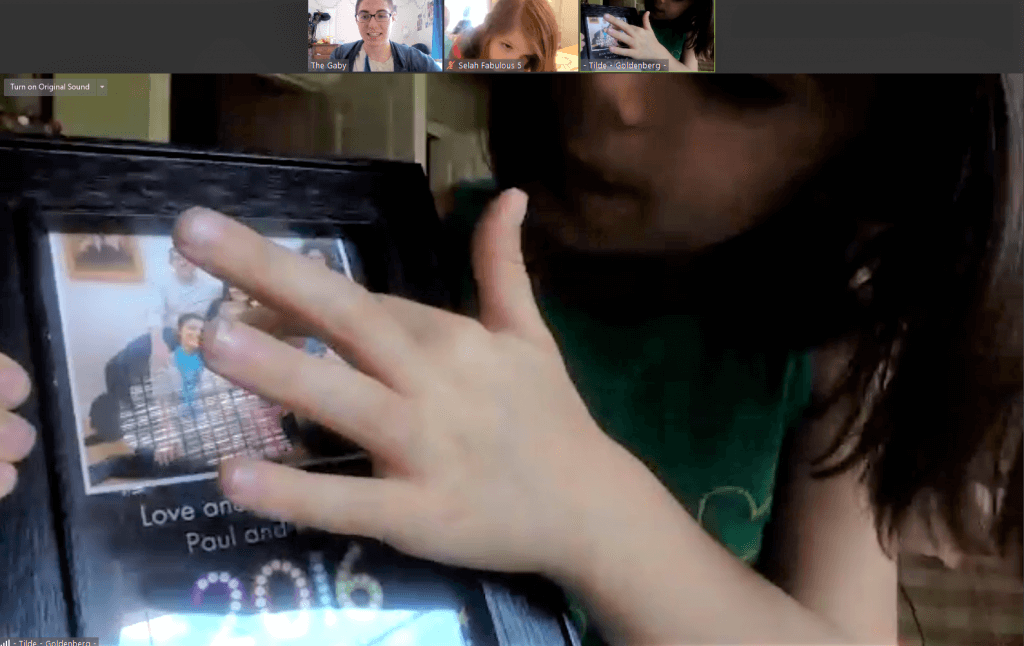
We showed pictures of our own families that reflected the dynamics we share. One kiddo said that most people in her family get along really well, but then she also has these two cousins who are sisters so they fight sometimes.
Next we zoomed in on Yosef’s gossip. We explored what exactly gossip is – could you be saying anything about another person, or is it only gossip if it’s something bad? – and how it can be harmful. By spreading negative stories about his brothers, Yosef harmed both his relationship with them and his father’s relationship with them. Some of the examples we used to investigate gossip were a little silly, but still had negative ramifications. Here’s a hypothetical scenario one kiddo illustrated: “My mom baked cookies and then they all disappeared. I told her that my brother ate them all. Now my mom is worried that he’ll be sick.” In addition to the needless worry mom is going through in this example, she might also believe the brother is less trustworthy than she had previously thought. Our words can really change the way people think about and treat each other!
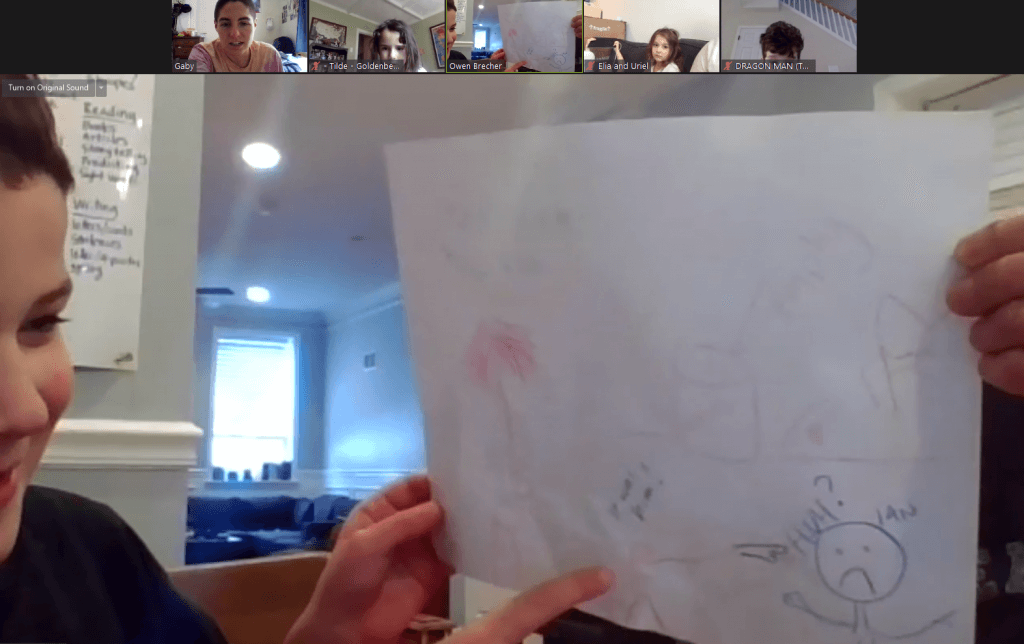
Shorashim: My precious
This past week the Shorashim (1st graders) spoke about the types of blessings God gives, and the types of blessings we can give as well. Earlier in the week, we discussed how we can “God” the world ourselves. Here were some thoughts:
- Something we can do without God doing it is because of God. We can stop pollution bit by bit but if God had never created us then we couldn’t do it cause we wouldn’t be alive.
- Our own ideas. I think God does some bad things but I think that makes the world a better place because we want to handle them ourselves and fix them.
Later we unpacked the idea of tzelem elohim (being made in God’s image), how special we are to God, and about God’s love for all of humanity, both Jewish and not.
- Maybe God feels disappointed in them [non-Jewish people] because they didn’t accept the Torah. But God is also ok with that and happy that they’re in God’s Image.
- You can still love something, even if it doesn’t look like you. It matters if you love them. Love is powerful.
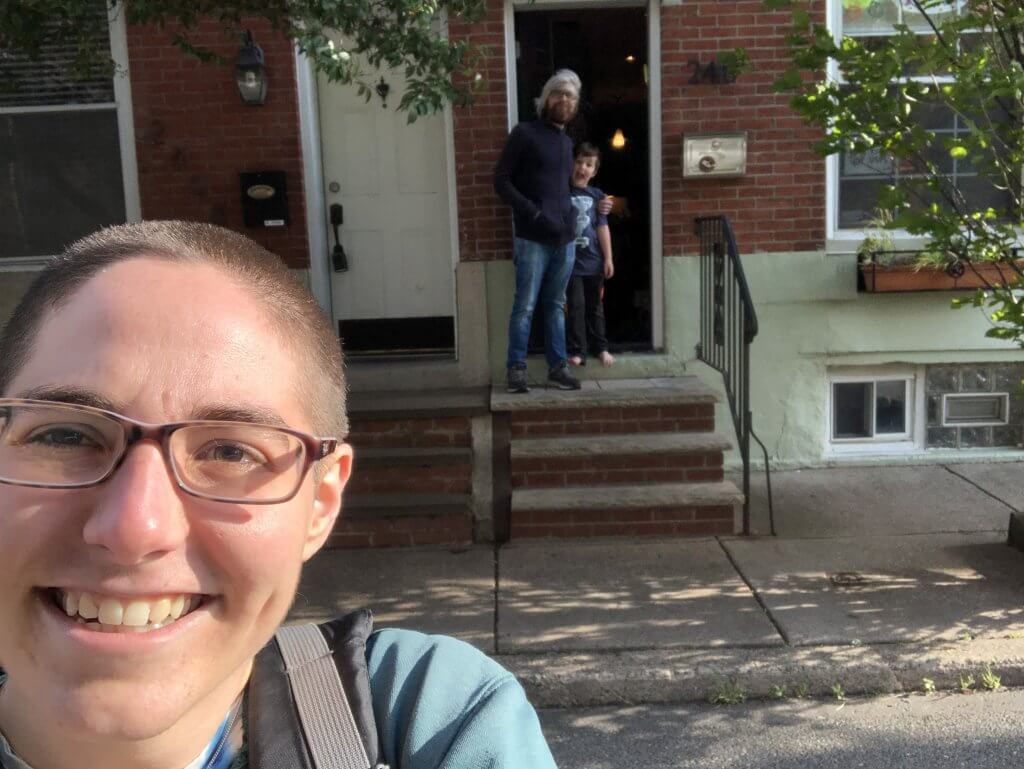
Jumping off the idea that people are precious to God, we explored what’s most precious to us. We read a commentary that suggests we hold our most dear possessions in our hands rather than packing them in a bag that we might forget somewhere (Sforno on Deuteronomy 33:3). What are your most precious items that you always have with you? What makes them precious?
- Water because you would need water, you wouldn’t just leave water on the ground–that’s wasteful.
- I would bring food.
- I would bring a family photo of my two sister’s bat mitzvah.
- A blanket I’ve had since I was born. It gives me memories of when I was younger.
- This sweatshirt with my family name on the front. It reminds me of other family and I can be warm
- My microphone because it helps me sing songs.
- I never leave diamonds behind cause they can be very special to me. And I love science and learning about rocks.
- My imaginary friends are really special to me because if i dont bring them I can get really sad and miss them.
- I love this book so that is love.
- Some of us brought memories and some of us brought things that would help us survive.
- We all brought things we loved and would never leave behind. But they were different for each person.
Nitzanim: Skill sharing partnerships
Two of the 12 tribes of Bnei Yisrael (the Jewish people) — Zevulun and Issachar — entered into a partnership. Zevulun went out to trade and make money and bring back food, while Issachar stayed at home to study Torah. Both tribes, though independent, worked together to ensure that everyone’s needs were met. The Nitzanim (2nd-4th graders) explored this relationship and how we can emulate it.
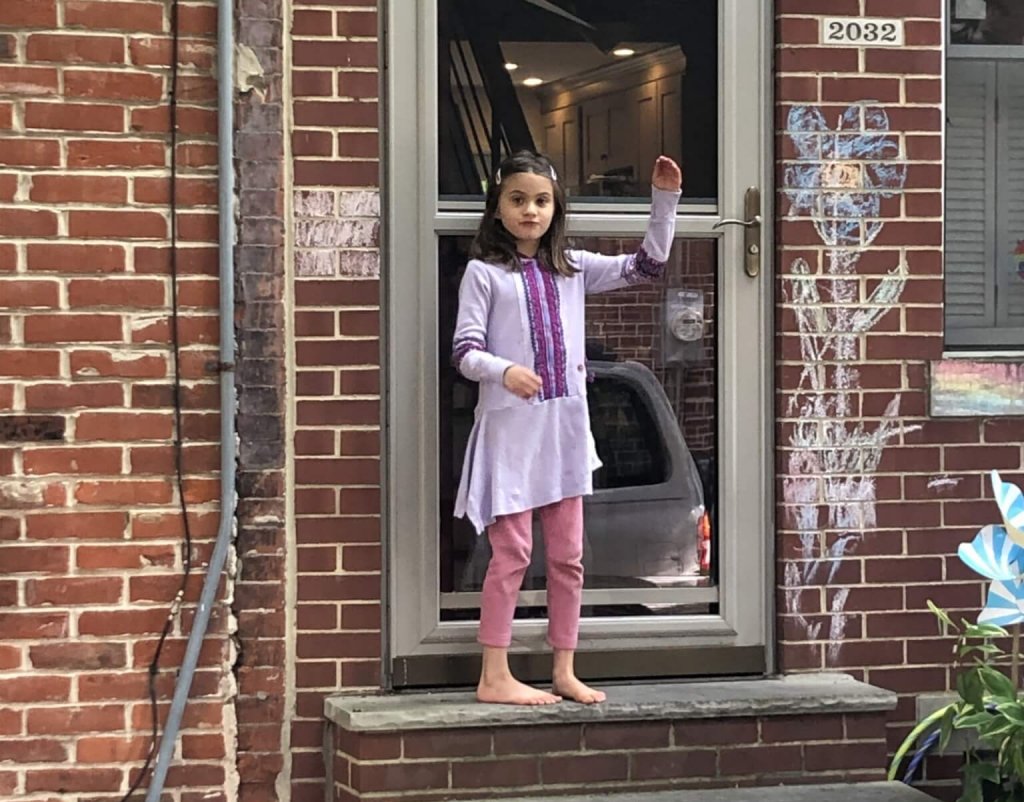
What are you really good at and proud of?
- Computer coding
- Writing, drawing, and bike riding
- Sports and math
- Taking care of people
- Climbing trees and doing karate
- Science
- School
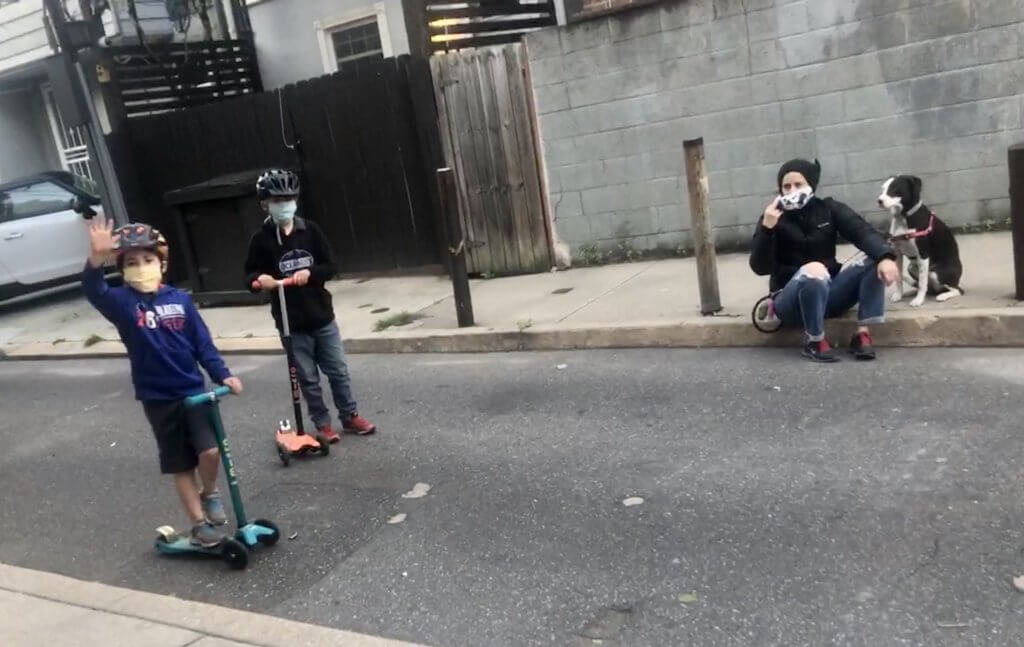
What a wide variety of special talents! Now, what’s something you aren’t good at yet and might need some help with?
- Writing
- Math
- Anger management
- Video games
- Drawing
We noticed that a few things that a kiddo mentioned they might need help with (writing, math, drawing) were things that someone else was really good at. Those kiddos could be a good match for each other, just like Zevulun and Issachar. By helping each other with things we’re not so good at, we are able to use our special skills to be a brachah (blessing) for one another. We can be just like Zevulun and Issachar, helping each other become better people.
